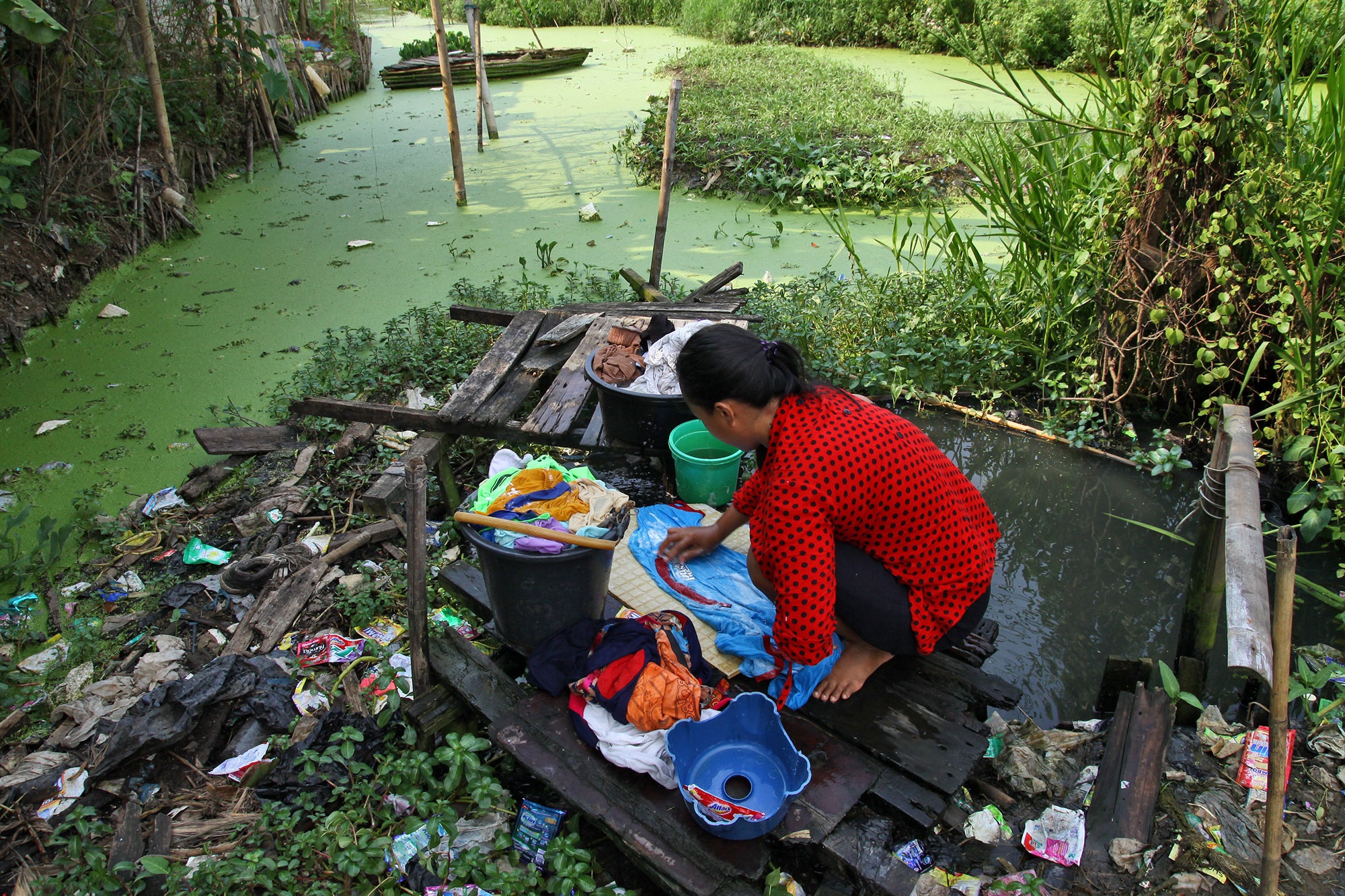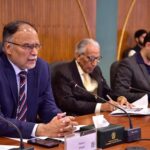UNITED NATIONS, Mar 22 (APP): The world’s precious water resources are “in deep trouble”, UN Secretary-General Antonio Guterres warned Wednesday, while calling for dealing with what has become a multifaceted global crisis, before it is too late.
The UN chief was addressing the UN Water Conference, which opened on Wednesday, as this vital natural resource is being depleted, polluted and mismanaged.
The three-day event – co-hosted by the Kingdom of the Netherlands and Tajikistan – falls at the halfway point for achieving the Sustainable Development Goals (SDGs), which include the promise of ensuring all people have access to safe water and sanitation by 2030.
A four-member Pakistan delegation, led by Secretary of Water Resources Hasan Nasir Jamy, is participating in the conference.
In his opening address, the secretary-general underscored that water was a human right and critical to development that will shape a better global future.
“But water is in deep trouble”, he warned. “We are draining humanity’s lifeblood through vampiric overconsumption and unsustainable use, and evaporating it through global heating. We’ve broken the water cycle, destroyed ecosystems and contaminated groundwater.”
The UN chief noted that nearly three out of four natural disasters are linked to water, and a quarter of the planet lives without safely managed water services or clean drinking water.
Furthermore, 1.7 billion people lack basic sanitation, half a billion people practice open defecation, and millions of girls spend hours each day just to fetch water.
Leaders attending the conference are being challenged to find game-changing solutions to the global water crisis, characterized by ‘too much water’ – for example, storms and floods; ‘too little water’, such as droughts and groundwater scarcity, and ‘too dirty water’, such as polluted sources for drinking.
“This conference must represent a quantum leap in the capacity of member states and the international community to recognize and act upon the vital importance of water to our world’s sustainability and as a tool to foster peace and international co-operation,” the secretary-general said.
Guterres called for action in four key areas, starting with closing what he called “the water management gap”.
He said governments must develop and implement plans that ensure equitable water access for all people while also promoting water conservation, and they must work together to jointly manage the precious resource.
His second point, on the need for massive investment in water and sanitation systems, highlighted the proposed SDG Stimulus Plan and reforms to the global financial architecture aimed at ramping up investment in sustainable development.
“International financial institutions should develop creative ways to extend financing and accelerate the re-allocation of Special Drawing Rights. And multilateral development banks should continue expanding their portfolios on water and sanitation to support countries in desperate need,” he said.
His third point focused on resilience because “we cannot manage this 21st century emergency with infrastructure from another age.”
Guterres called for investment in disaster-resilient pipelines, water-delivery infrastructure, and wastewater treatment plants, and in new ways to recycle and conserve water.
The international community will also need climate and biodiversity-smart food systems that reduce methane emissions and water use, and a new global information system to forecast water needs in real time.
Investment also means ensuring every person worldwide is covered by early warning systems against climate or weather disasters, as well as exploring new public-private partnerships.
The secretary-general also called for addressing climate change, his final point. “Climate action and a sustainable water future are two sides of the same coin,” he said.
He urged countries to “spare no effort” to limit global warming to 1.5 degrees Celsius and deliver climate justice to developing countries.
Guterres recalled his proposal to the G20 most-industralised nations to establish a Climate Solidarity Pact in which all big emitters make extra efforts to cut emissions.
Wealthier countries would also mobilize financial and technical resources to support emerging economies.
In his remarks, UN General Assembly President Csaba Korsi noted that the international community is now at “a watershed moment”.
“We know that we cannot fulfil our promise of sustainability, economic stability and global wellbeing by speeding up conventional solutions,” he said. “We neither have enough time nor planet. There is simply not enough fresh water left anymore.”
Korosi said the international community must acknowledge that water is “a global common good and adjust policy, legislation, and financing accordingly,” urging countries “to work in favour of people and planet, not procrastination and profit.”
He called for integrated land-use, water and climate policies, which would make water “a lever of climate mitigation and adaptation”, which would also build resilience, for both people and nature, and address growing hunger worldwide.
“We can work together to empower states and stakeholders through the global water information system that is our life insurance for resolving the dilemma of water availability, demand and storage,” he said.
Korosi stressed that the conference was “not a venue to negotiate positions, advantages, and compromise”, and urged leaders “to deliberate solutions that are science based, sustainable, pragmatic and in solidarity.”
At the start of the conference, the President of Tajikistan, Emomali Rahmon, and King Willem-Alexander of the Netherlands, were elected presidents of the event.






